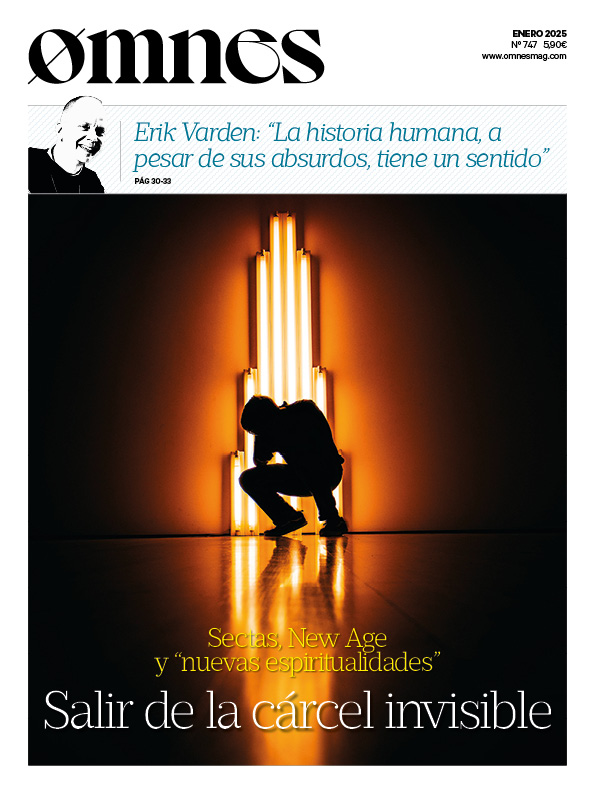The social and economic consequences of the Covid pandemic have been devastating for many families. And while the pandemic is not yet over, "we still have no clear prospects of how long it will continue to weigh on the world economy, as a new crisis has been added, this time of an inflationary type, derived mainly from the war in Ukraine which, once again, brings with it serious repercussions on the levels of precariousness of families", points out the reportentitled "The cost of living and family strategies to deal with it".
Now, society is affected by the rising cost of living, "which represents a new setback for many businesses and households in our country". Caritas Secretary General, Natalia Peiro, emphasized this during the presentation of the report: "the situation affects the whole of society, but it has more serious consequences for the most vulnerable families, for the weakest sectors of society".
Among the data in the report, synthesized by Thomas Ubrich, a member of the Foessa Foundation's technical team, are the following: "three out of 10 families in Spain are being forced to cut essential expenses on food, clothing and footwear, as well as supplies, and "seven out of 10 households with incomes below 85 percent of their budget have reduced their spending on clothing and apparel."
Of the six million households with serious difficulties, half, that is, "three million families, have cut their family food budget; a quarter of them can not take a special diet that is needed for medical reasons; and 18 percent of households with dependent children have stopped using the school canteen because they can not afford it, which means about half a million households with children in Spain". In addition, "six out of 10 households have reduced their consumption of electricity, gas, water or heating, and 22 percent have asked for help to pay for these supplies".
Receipts increase
The accumulation of data reflects the impact of the inflationary spiral to which Natalia Peiro referred, based on the report: "For several months now, everyone in Spain has been observing the trend: bills are rising and it is becoming increasingly difficult to fill the fridge. In June, inflation continued to accelerate, reaching highs not seen in 37 years, and now stands at 10.2 %. For its part, the European Commission estimates that we will close the year 2022 with a global inflation rate of 8.1%. In addition to electricity and gas, the shopping basket bill is following the same trend. And it seems that it is here to stay, since according to the OECD, inflation in Spain will remain at a maximum until at least 2024. But who will have to bear such inflation?"
Foessa considers that "the effects will be multiplied for the more than 576,000 families without any kind of income or for the 600,000 families without a stable income who depend exclusively on a person working part-time or intermittently throughout the year. For all of them, this is no longer just a setback, but a serious situation of overflow".
Households with more problems
Households with serious difficulties in meeting their basic needs (income below 85 % of the Reference Budget for Decent Living Conditions, PRCVD), are found, above all, "among households living in rented accommodation, households with children in the home and of school and/or study age, people with disabilities or dependent persons, the existence of debts, the absence of stable income, and the unemployment of some or all of the active members of the household. It is also crucial to consider the gender gap and the set of added difficulties faced by households headed by a single adult and with the sole responsibility for the children".
On the other hand, having a stable income from a steady, quality job, owning a paid home, and living alone or as a couple without dependent children are clear protective factors against difficulties in covering basic needs, according to the report.
Who to turn to
According to Foessa, 73.6 % of households with incomes below 85 % of their PRCVD seek extra income through one of the following strategies:
- Ask a friend or relative for financial assistance.
- Approach an NGO, parish or social services to apply for financial assistance.
- Drawing on savings to cover expenses.
- Being forced to sell your private vehicle (car or motorcycle).
- Being forced to sell various belongings (jewelry, household appliances, etc.).
Public policies
With regard to the policies of public administrations, the report points out "the need" to work in these directions [Note: the numbering is editorial]:
1) A minimum income guarantee system based on the criteria of sufficiency to guarantee an adequate level so that food, clothing and other basic elements have an assured coverage, in conditions of dignity and freedom of choice.
This system must meet the minimum conditions of coverage, reaching the entire population living in extreme poverty without exceptions, accessibility and non-conditionality.
2) Guarantee a sufficient stock of social rental housing and emergency housing. Guarantee access to housing as part of basic needs and, therefore, a condition for an adequate standard of living.
3) Guarantee that compulsory education is free of charge in all its elements (materials, canteen, extracurricular activities, etc.), and the existence of sufficient scholarships for non-compulsory education so that no one is discriminated against due to insufficient income, including young migrants in an irregular situation.
4) Consider the relevance of the right to water and energy and access to the Internet as an essential element for equal opportunities.
5) To ensure the necessary medical treatment, social and health care accessories and essential care to guarantee the right to physical and mental health.
6) Strengthen inspections to prevent the labor exploitation of people taking advantage of their precarious and vulnerable situation.
7) To protect individuals and families who, due to their migrant origin, dependency or disability, family composition, gender, or any other issue, are in a disadvantaged situation.








